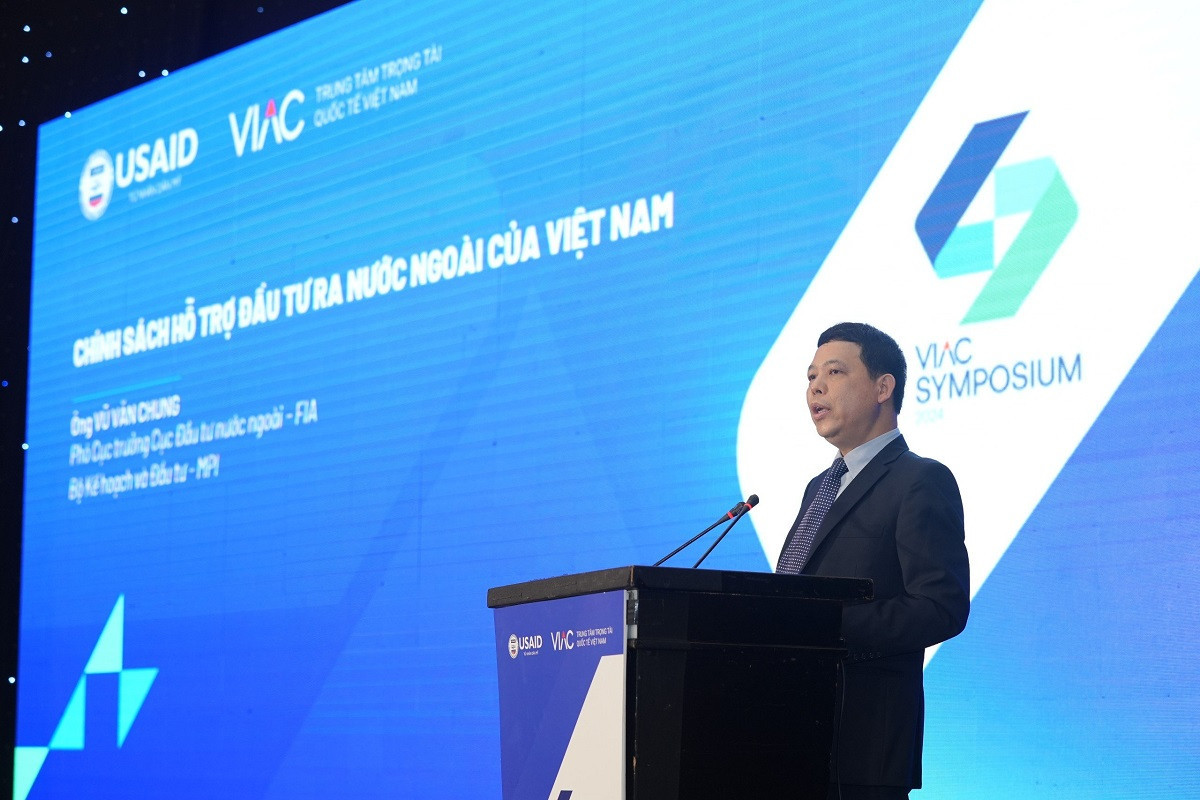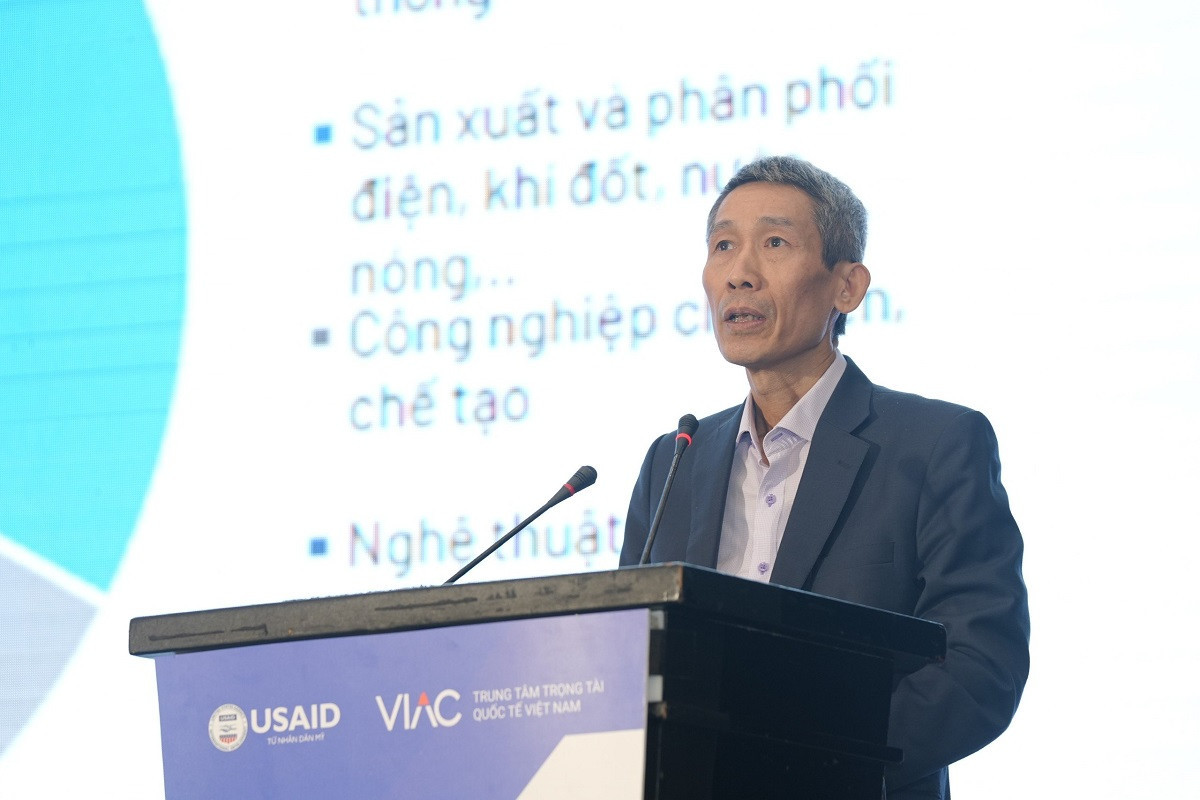Entering high value-added sectors

Mr. Vu Van Chung, Deputy Director of the Foreign Investment Department at the Ministry of Planning and Investment, highlighted the current state of foreign investment by Vietnamese enterprises during the VIAC SYMPOSIUM 2024. He noted that Vietnam has 1,733 foreign investment projects in 81 countries and territories, totaling nearly $23 billion. This represents an average annual investment of around $400-$500 million, which is modest compared to Vietnam's $430 billion economy.
While Vietnam has some financial support policies for overseas investments, they are limited. In contrast, countries like Japan and South Korea have substantial funds to support their businesses abroad. China, for example, has a $5 billion fund for overseas mineral investments, a resource Vietnam lacks.
In the early stages, most overseas investments were made by state-owned enterprises. However, in the past five years, private enterprises have significantly increased their share. Currently, private enterprises account for 46% of overseas investments, state-owned enterprises 52%, with no new projects from state-owned enterprises in 2023.
Vietnamese enterprises have expanded their investments beyond countries with similar policy mechanisms, such as Laos and Cambodia, to developed nations like Japan, South Korea, the US, the EU, Australia, and Singapore. This marks a significant shift in recent years.
In addition to investments in resource-intensive fields like minerals and agriculture, Vietnamese enterprises are also venturing into high-value sectors such as manufacturing, banking, financial services, and high technology. Companies like FPT have achieved notable success in Japan and South Korea.
Vietnam has agreements with nearly 80 countries on investment encouragement and protection and on double taxation avoidance, providing essential safeguards for overseas investments.
However, Mr. Chung warned that many Vietnamese enterprises, even large ones, often overlook the importance of thoroughly understanding international legal frameworks, leading to potential legal risks. He emphasized that understanding legal issues is crucial for avoiding pitfalls in foreign markets.
Identifying risks

Assoc. Prof. Dr. Pham Duy Nghia, Director of the Public Policy Program at Fulbright University Vietnam, pointed out the inherent risks in overseas investments. He cited the example of PVN, which has both successful and troubled overseas projects, such as the one in Venezuela. Viettel, which operates in 13 foreign markets, also faces mixed results.
Mr. Nghia likened overseas investment to a marriage, emphasizing the importance of thorough research to mitigate risks. He highlighted the changing global landscape, where government and community reactions can impact investments, and stressed the importance of adhering to environmentally friendly practices.
He advised businesses to actively participate in the policymaking process in host countries and form alliances to complement their skills. Establishing a legal department to identify and manage risks and hiring professional law firms for specialized legal tasks is also crucial.
To minimize risks, Mr. Nghia emphasized the importance of investing in thorough risk assessments before entering new markets. Proper planning and real-time risk analysis can prevent substantial losses and ensure long-term success in global investments.
Mr. Truong Nhat Quang, Managing Lawyer of YKVN Law Firm, noted that Vietnamese investments are increasingly targeting high-tech sectors. Companies like Masan and Vingroup are investing in AI, fintech, and electric car manufacturing technology. Viettel, with 50% of its revenue and profit from overseas investments, exemplifies the significant impact of successful international ventures.
Binh Minh